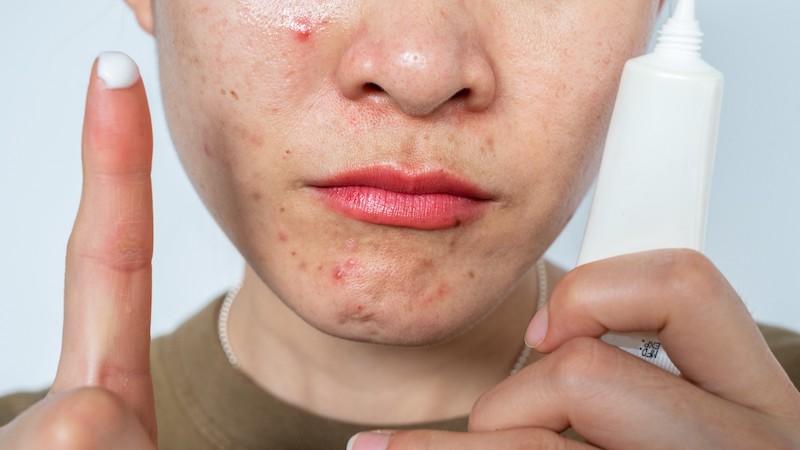


Date: 04 Jun 2025
Acne vulgaris is a common skin condition affecting millions worldwide, characterized by pimples, blackheads, whiteheads, and sometimes cysts. Among the many skincare treatments available, retinol for acne has gained popularity for its powerful ability to clear pores, reduce inflammation, and improve overall skin texture. However, despite its benefits, retinol requires careful use, especially for individuals with sensitive or acne-prone skin.
Several factors contribute to the development of acne vulgaris:
Acne vulgaris can appear in different forms, including:
Retinol is a derivative of vitamin A, commonly used in skincare products for acne treatment. It works by accelerating skin cell turnover, helping to unclog pores and reduce the buildup of dead skin cells that contribute to breakouts. Over time, it can also help fade acne scars, minimize fine lines, and improve uneven skin tone, making it a multi-benefit ingredient in many acne skincare routines.

When used correctly, retinol is one of the most effective topical treatments for acne vulgaris. Here’s how it works:
While retinol offers visible improvements in acne-prone skin, it must be introduced cautiously. Here are essential retinol usage tips to minimize irritation and maximize results:
Retinol isn’t suitable for everyone. You should consult your healthcare provider before use if:
Here are some of the best retinol products in Kenya for managing acne, available at Pharmily.co.ke:
This lightweight serum is ideal for retinol beginners. With a low-strength formulation (0.2%), it helps boost skin turnover and reduce acne without overwhelming sensitive skin.
The squalane base offers hydration and barrier support, minimizing dryness often associated with retinol use. Perfect for those just starting their acne treatment routine with retinol.
A dermatologist-developed formula designed to fade acne scars and post-inflammatory hyperpigmentation. It combines encapsulated retinol with niacinamide and ceramides, helping to calm the skin and restore its protective barrier.
This serum is especially effective for people struggling with uneven skin tone and texture after acne breakouts.
This gentle yet effective serum contains pure retinol and vitamin B3 (niacinamide) to smooth fine lines and treat acne-prone skin. Its lightweight texture makes it ideal for sensitive skin types, and it helps reduce blemishes while improving skin clarity over time. A top pick for those looking for retinol for sensitive skin with acne.
A fast-acting retinol oil for acne and aging skin, this product is infused with retinol SA and nourishing oils. It improves skin tone, fades dark spots, and boosts hydration in one step. Great for acne-prone skin that’s also dealing with early signs of aging or dryness.
Yes, this is called skin purging. When starting retinol, some people experience temporary breakouts as the product speeds up cell turnover, pushing clogged pores to the surface. This is normal and often resolves within a few weeks. Be patient and continue using the product as directed.
If you're new to retinol, start with 2–3 times per week to allow your skin to adjust. Over time, and if your skin tolerates it well, you can increase usage to every other night or nightly. Always follow up with a moisturizer and sunscreen during the day.
Yes. Retinol is particularly beneficial for oily and acne-prone skin because it helps unclog pores, reduce excess oil, and prevent new breakouts. Choose a formulation suitable for your skin type—non-comedogenic, lightweight, and ideally with hydrating ingredients.
Retinoids are a class of vitamin A derivatives, and retinol is one of the milder, over-the-counter types. Stronger prescription options like tretinoin (retinoic acid) act faster but can cause more irritation. Retinol is ideal for beginners or those with sensitive skin.
It's best to avoid using retinol with strong actives like salicylic acid, benzoyl peroxide, or AHAs/BHAs at the same time unless advised by a dermatologist. These combinations can cause dryness, irritation, or skin barrier damage. Alternate usage or consult a professional for a tailored routine.